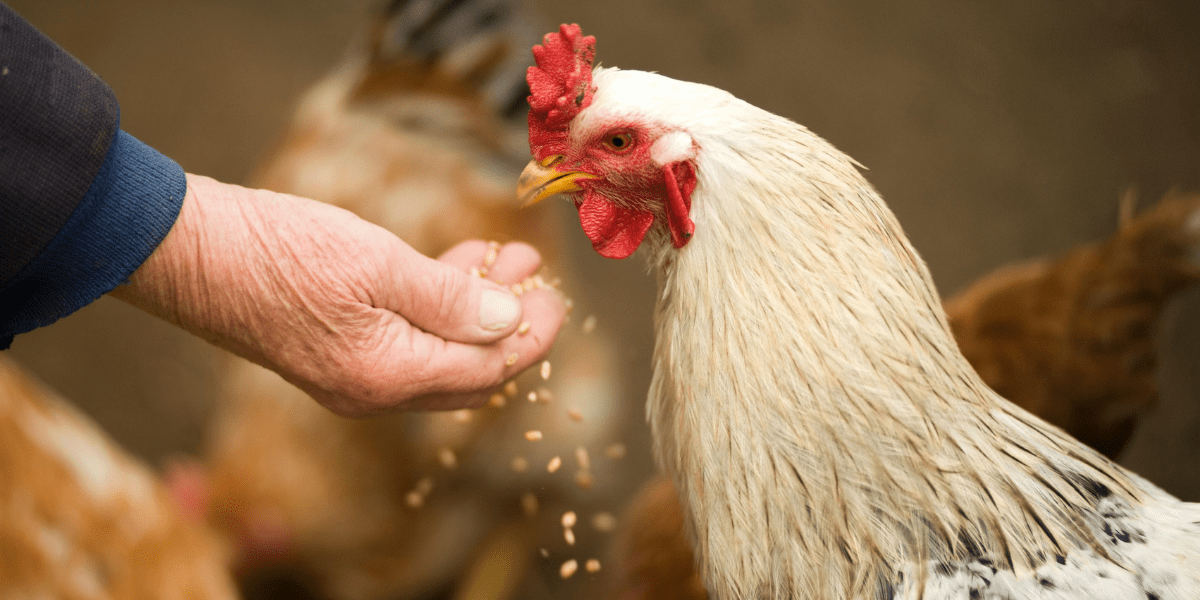Nutrition and Heat Stress in Broiler Chickens

With over 30 billion broilers slaughtered annually in Asia, the quality of life and welfare of these birds are critical issues in the poultry production chain, which generates $89 billion in the region, as highlighted by the Broiler Production in Asia report by Compassion in World Farming. Alongside facility design and management practices, thermal comfort is one of the main factors influencing their quality of life and welfare.
The nutrition of broiler chickens can mitigate the effects of heat stress they may experience during their rearing. If not carefully managed, these animals may face more severe consequences due to heat stress at two key life stages: feeling cold during their first few weeks of life or experiencing heat before the slaughter period.
It is worth noting that the quality of broiler meat is significantly affected by temperature, which can interfere with the birds’ ability to retain water, maintain color, and regulate pH, thereby reducing the quality of derived products and the economic value of the cuts.
Thus, understanding the tools a balanced diet offers to support thermal balance—especially during these phases and amid extreme climate challenges such as heat—becomes an ally to environmental conditions in maintaining the animals’ quality of life.
In this article, learn how broiler chicken nutrition is a key element for maintaining their welfare and ensuring the quality of the final product.
Impacts of Nutrition on Broiler Chickens
The nutrition of broiler chickens can be an effective ally in minimizing heat stress. It serves as a vital tool due to the biological characteristics of these birds.
Chickens produce heat and constantly require internal thermal balance, known as homeothermy, particularly because their ability to dissipate heat is inefficient due to the lack of sweat glands.
Their ideal body temperature is around 41°C (105.8°F), and a slight increase of 4 or 5 degrees can lead to fatal consequences.
In this context, effective management of the heat generated by the birds can significantly enhance their welfare and the quality of the meat produced.
Balanced Diet
Dietary adjustments are essential for producers to regulate stress causes and use them as indicators to assess bird welfare.
One critical factor influenced by dietary nutrients is the respiratory quality of broiler chickens.
Thermal imbalance causes panting in the birds, leading to the formation of free radicals. When these radicals exceed the antioxidant capacity, oxidative stress occurs.
This type of heat stress can result from excessive cold or heat but tends to be more severe in response to heat challenges.
To balance the heat generated by metabolism, heat exchange with the environment, and evaporative losses, nutritional tools are essential.
Nutritional Tips to Mitigate Heat Stress
A diet that enables good nutrient absorption is vital for the metabolism of broiler chickens and directly impacts their gut health, as the birds’ feed efficiency is influenced by temperature.
This involves the balanced distribution of enzymes, vitamins, and amino acids that affect thermal regulation performance.
When developing diets, producers should consider the following aspects for broiler nutrition:
- Ingredients that enhance digestion;
- Diets supported by digestive enzymes;
- Nutrients to boost immunity;
- Focus on reducing oxidative stress.
The active components that can improve feed efficiency and increase nutritional efficacy are categorized into several groups:
- Amino acids and proteins: When used in moderation, they improve efficiency in the economic and environmental aspects of broiler metabolism.
- Enzymes: These promote gut health, reduce energy demands during digestion, and lower endogenous heat production.
- Vitamins: Especially when paired with zinc, selenium, and vitamins E and C, they help prevent oxidation and heat stress.
- Organic acids: These improve nutrient digestion, enhance immune response and antimicrobial action, and lower intestinal pH.
- Essential oils: These can act as natural growth promoters, antibacterial, anti-inflammatory, antiparasitic, antioxidant, and immunomodulatory agents. They also stimulate intestinal motility, increasing nutrient digestibility and absorption.
Interested in learning more about the certification process in broiler chicken production? Click here to download the Standards for Broiler Chicken Rearing.
Published on April 28, 2025



